What Does HubSpot Do and What (and Who) Is It For?
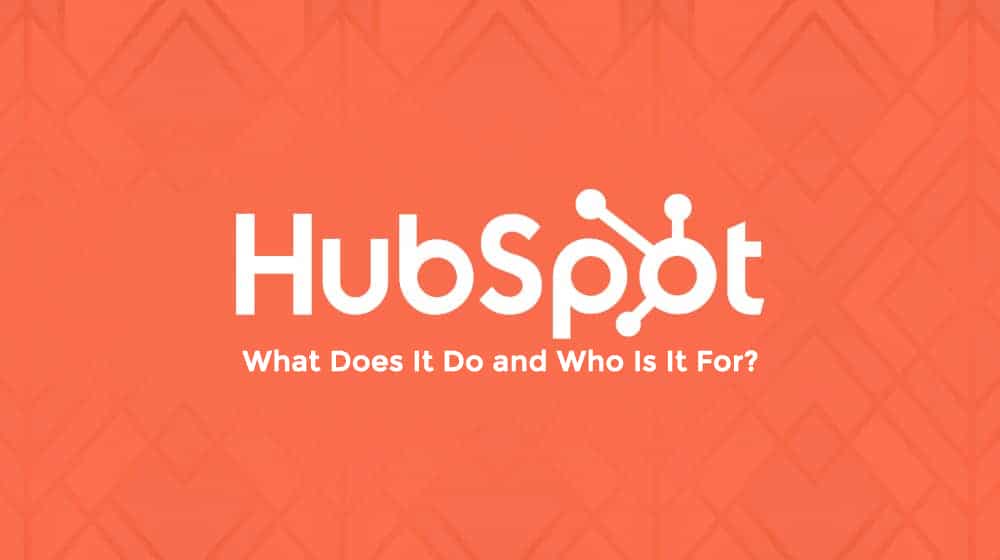
Have you ever wondered about the secret behind thriving businesses in today's digital age? Well, it might just be HubSpot. This titan of tech has taken center stage for countless companies worldwide.
"HubSpot...why does that ring a bell?" you may ask yourself. Perhaps you've heard whispers of its impressive tools and platforms or caught glimpses of its powerful CRM suite. In my case, many of my clients use it, some just for their CRM or CMS and others for their entire marketing suite.
If curiosity is getting the better of you, hold tight because we're digging into what makes HubSpot tick! Buckle up – there are golden nuggets ahead on how this giant can transform your business strategy!
 30 Second Summary
30 Second Summary
HubSpot, established 2006, serves as a comprehensive solution for digital marketing, sales, and service requirements. It attracts customers by providing valuable content in order to foster long-lasting loyalty. It's a powerful tool for businesses of all sizes, aiding in SEO optimization, managing social media campaigns, and analyzing data. HubSpot is especially helpful for marketers, sales teams, and customer service representatives. It contributes to lead generation, customer relationship management, SEO optimization, social media management, data analysis, sales automation, customer support, content creation and management, integration, and personalized interactions.
What is HubSpot?
If you're looking for a single platform to handle your business's marketing, sales, and service needs, look no further than HubSpot.
Think of it as an all-in-one Swiss Army knife for digital marketing.
Founded in 2006 by Brian Halligan and Dharmesh Shah out of the Massachusetts Institute of Technology (MIT), HubSpot has grown into one of the leading providers of inbound marketing.
But what does that entail? Imagine attracting customers like bees to honey rather than chasing them around like a dog after its tail - that's the essence of inbound marketing.
HubSpot has a really good video on inbound marketing in their course. I completed the HubSpot academy sometime last year, and this stuck with me; I highly recommend watching it. I'm not allowed to embed it directly, but it's free to watch here if you have a free HubSpot account.
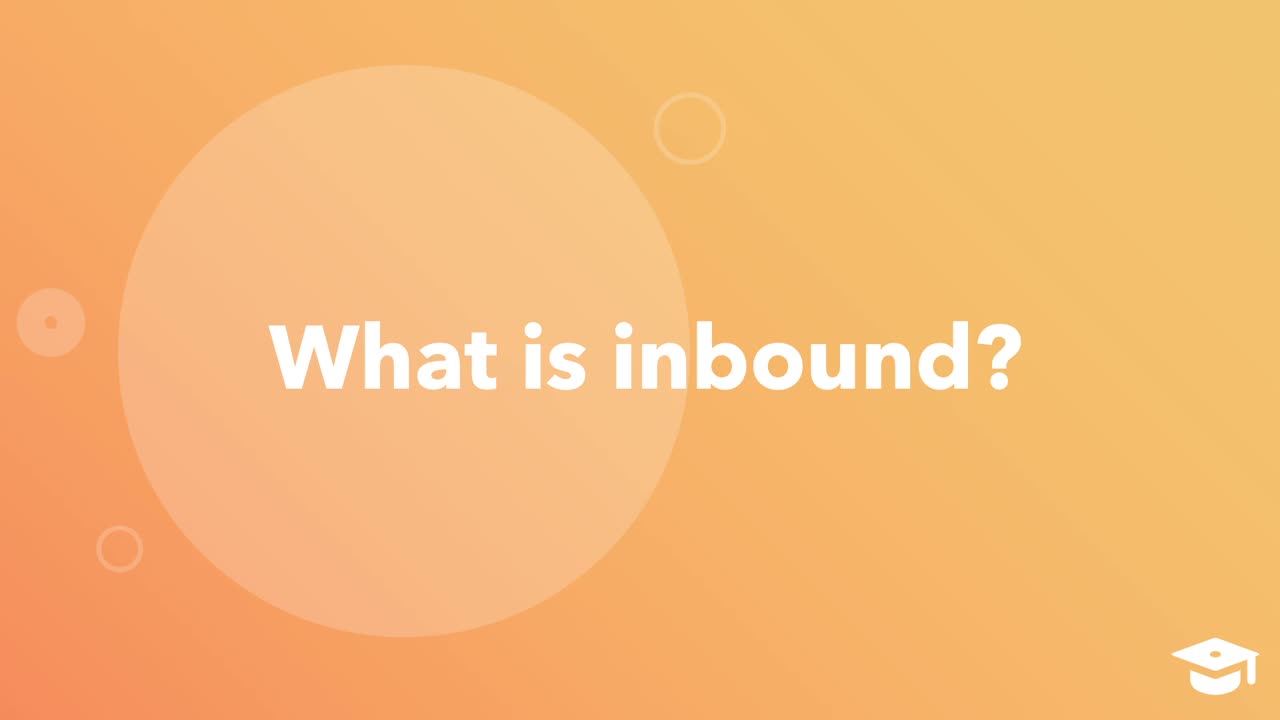
In simpler terms, instead of trying hard to reach out to potential customers through cold calls or spammy emails (which, let's be honest, can feel akin to being chased by zombies), HubSpot helps businesses attract customers naturally through valuable content. And when we say "content," think blogs, social media posts, ebooks - anything useful enough so people willingly come towards it, just like kids rushing towards an ice cream truck on a hot summer day.
The brilliance behind this approach is two-fold: firstly, because users are more likely inclined towards companies they find helpful; secondly, because building such goodwill leads not only toward purchase but also fosters long-term customer loyalty – much like making friends with someone who always brings great snacks at parties.
What Does HubSpot Do, and Who Is It For?
HubSpot offers a comprehensive suite of tools to benefit businesses of all sizes. Businesses of all shapes and sizes find value in its wide array of tools.
HubSpot is an all-encompassing inbound marketing tool that assists businesses to flourish. Think lead generation on steroids with CRM functionality to boot. It does this by giving you the ability to create compelling content, optimize for SEO, manage social media campaigns, and analyze data—all under one roof.
If we were to compare HubSpot with anything else out there—well—it would be like comparing apples with oranges. The level of integration across various functionalities truly sets it apart from competitors.
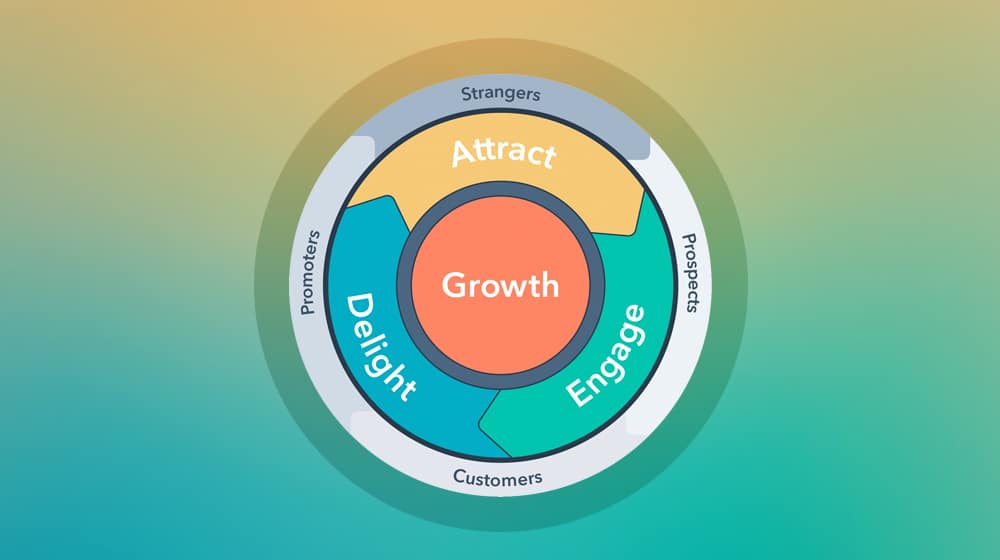
Catering primarily to small-to-midsize businesses, the company provides solutions tailored specifically for marketers, sales teams, and customer service reps who are looking for more efficient ways to connect with customers while growing their businesses.
Here's a quick list to give you an idea of the type of people that HubSpot helps and some of the things that it helps with:
Types of Audiences HubSpot Targets
- Small Businesses: Entrepreneurs and startups that require an integrated approach to grow their online presence and connect with prospects.
- Midsize Businesses: Established companies looking to scale their operations and strengthen their inbound marketing strategies.
- Marketers: Individuals or teams in charge of creating and promoting content, driving organic traffic, and converting leads.
- Sales Teams: Professionals focused on nurturing leads, closing deals, and managing customer relationships.
- Customer Service Representatives: Teams or individuals responsible for addressing customer queries, resolving issues, and ensuring customer satisfaction.
- Content Creators: Bloggers, writers, and other content specialists aiming for SEO optimization and better engagement.
- Social Media Managers: Professionals or teams responsible for planning, executing, and analyzing social media campaigns.
- Data Analysts: Those looking to understand customer behavior, track metrics, and improve strategies based on insights.
Pain Points HubSpot Solves
- Lead Generation: Offers tools to create content that attracts and converts visitors into leads.
- Customer Relationship Management (CRM): Provides an integrated system to manage and nurture customer relationships, from initial contact to long-term loyalty.
- SEO Optimization: Helps businesses rank better on search engines by providing tools and insights.
- Social Media Management: Centralizes the process of planning, posting, and analyzing social media campaigns.
- Data Analysis: Gives businesses the ability to analyze metrics and understand customer behavior to make informed decisions.
- Sales Automation: Allows sales teams to automate routine tasks and focus on building relationships and closing deals.
- Customer Support: Offers helpdesk-like features that enable customer service reps to efficiently resolve issues.
- Content Creation and Management: Provides tools for creating, publishing, and tracking the performance of content.
- Integration: Allows for seamless connectivity across various marketing, sales, and service tools, ensuring data consistency and reducing manual efforts.
- Personalized Interactions: Enables businesses to deliver personalized content and interactions based on customer behavior and preferences.
Sales teams can use the platform's robust CRM features along with advanced automation capabilities for nurturing leads into loyal customers. On top of that, customer service representatives get helpdesk-like features at their disposal, allowing them not only to resolve issues quickly but also to build strong relationships through personalized interactions.
How HubSpot (And How Each Hub) Works
Using HubSpot can offer a wealth of benefits to businesses, no matter their size or industry.
Many often think of HubSpot as a singular platform, but it's much more than that. HubSpot encompasses a variety of tools and services designed for different business needs.
If you've never heard of HubSpot, one thing to learn is that HubSpot is actually a group of different "Hubs," and each one does something different, but they are all tied into the same ecosystem.
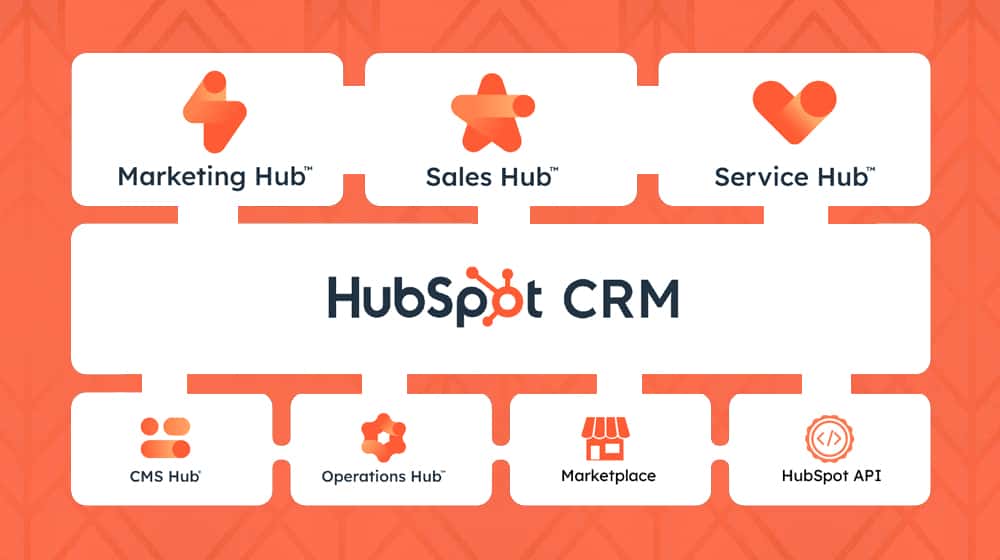
This means no more jumping between different tools to get a complete picture of your customer relationships. Instead, it's like viewing an intricate tapestry where each thread represents an interaction with your customers - emails sent and received, calls made and logged, deals won or lost; everything is right there in front of you.
All these elements together make sure that using HubSpot is not just beneficial but crucial for success in today's digital landscape.
Before I hop in, this isn't the first time I've talked about HubSpot:
- I wrote a post titled "HubSpot Pro and Enterprise: Are They Worth the Money?" where I delved into the specifics of HubSpot's pro and enterprise platforms, including the Marketing, Sales, Service, and CMS Hubs. I assessed the value of their features across different pricing tiers and shed light on the potential advantages of their bundled offers. My aim was to guide readers in determining the best fit for their business size and needs.
- I wrote a comprehensive guide titled "25 of The Best HubSpot Competitors (By Category)", where I deeply explored alternative platforms to HubSpot's five main Hubs. I examined numerous solutions for each of HubSpot's service packages: Marketing Hub, Sales Hub, Service Hub, CMS Hub, and Operations Hub. For each category, I highlighted several key competitors, discussing their unique features and how they stack up against HubSpot. Whether you're a small business weighing cost-effectiveness or a larger enterprise seeking diverse functionality, my post offers insights to help you find the best-fit platform tailored to your needs.
- I wrote an in-depth article titled "How to Properly Manage and Grow a HubSpot CMS Blog," where I discussed the intricacies of the HubSpot Content Management System. In this guide, I compared HubSpot CMS to other popular platforms like WordPress, highlighting its strengths, such as built-in marketing features, speed optimization, and security. Additionally, I provided readers with step-by-step instructions on setting up their HubSpot CMS, from getting acquainted with the tools available to developing a robust blogging strategy.
- I wrote an article titled "8 Ways to Use HubSpot and WordPress Together (Updated)," where I explored the potential synergies between two prominent platforms: WordPress, a top-tier CMS, and HubSpot, a leader in marketing automation and services. This article details three primary methods of integrating the two platforms, ranging from simply utilizing HubSpot's free features on a WordPress site to completely migrating a WordPress site over to HubSpot.
Surprisingly, I haven't dug too much into HubSpot by itself. Since some of my clients are asking me, I figured I'd break it down in detail.
Let's dig into each "spoke" of the HubSpot hub:
The HubSpot CMS Hub
The HubSpot CMS Hub is a centralized platform designed for content management and website optimization.
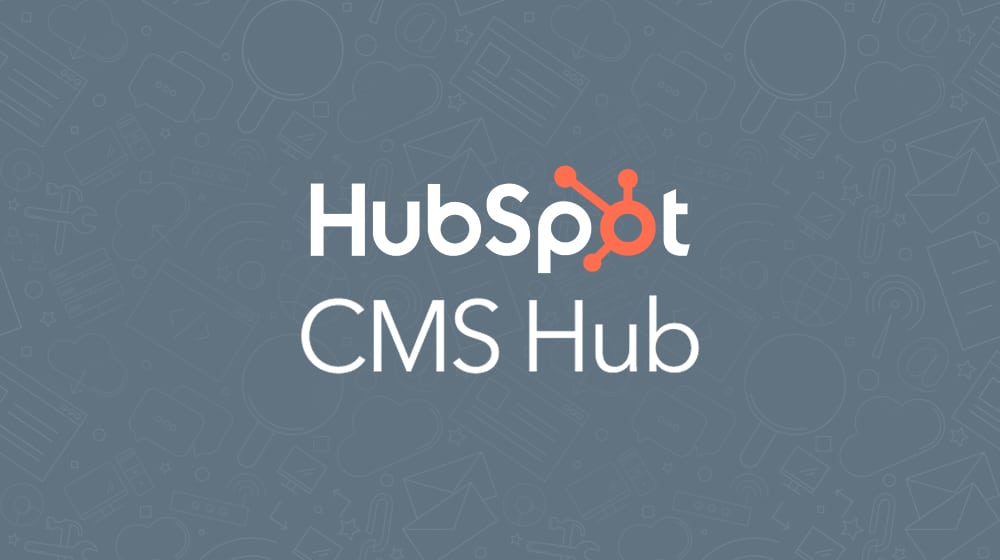
You no longer need to switch between different tools to update your website. The HubSpot CMS Hub consolidates content management tasks—everything from updating blog posts to designing landing pages—all in one place.
HubSpot CMS Hub Pricing:
- Free: $0/month
- Starter: $23/month
- Professional: $360/month
- Enterprise: $1,200/month
The CMS is versatile, catering to both small businesses and large enterprises. It's not just a content management tool; it also offers features for analyzing visitor behavior and optimizing for conversions.

With its integrated analytics, you can understand your website's performance at both a detailed level and a broader overview.
For anyone managing a website, from individual content creators to large marketing teams, the HubSpot CMS Hub provides a straightforward solution for digital content needs.
We create blog content that converts - not just for ourselves, but for our clients, too.
We pick blog topics like hedge funds pick stocks. Then, we create articles that are 10x better to earn the top spot.
Content marketing has two ingredients - content and marketing. We've earned our black belts in both.
The HubSpot Marketing Hub
As a marketer, your primary objectives are to drive revenue, conserve resources, and consistently optimize your investments.
The HubSpot Marketing Hub is designed to streamline these efforts, available in editions from Free to Enterprise, each tailored to various needs but united in their mission: to enhance marketing efficiency.
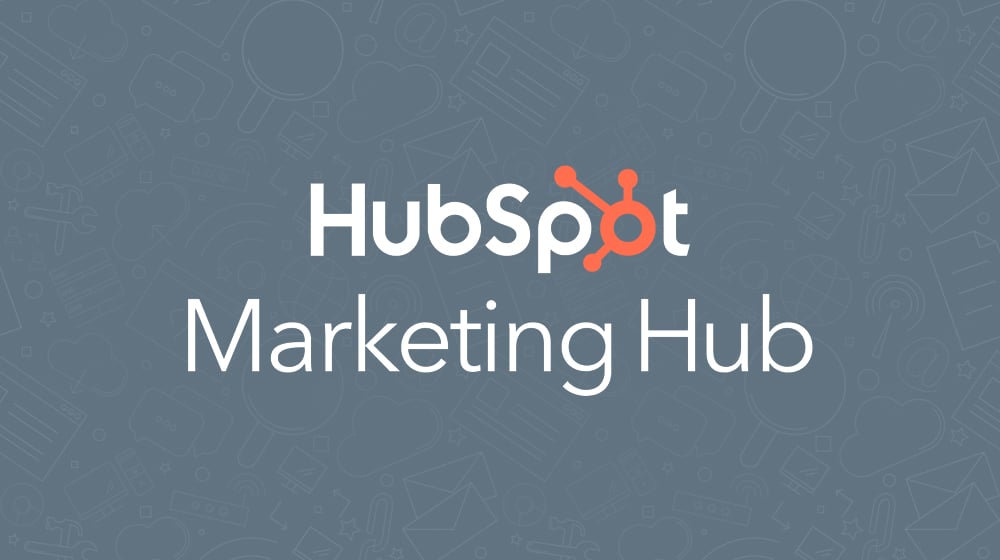
If the challenge of managing multiple software tools has ever hampered your productivity, the allure of an integrated system becomes clear. Imagine a singular tool that oversees every facet of inbound marketing, from lead generation to campaign analysis.
The Marketing Hub doesn't stop there. It harmoniously integrates with vital elements like the CRM suite, facilitating personalized experiences on a grand scale. Among its standout features are SEO guidance and content strategy tools, positioning marketers a step ahead of competitors still navigating these terrains blindly.
Moreover, the convenience of social media scheduling allows teams to coordinate posts across multiple platforms in advance. Paired with its analytical capabilities offering real-time insights into customer behavior, it's no wonder many marketers regard the HubSpot Marketing Hub as their secret arsenal.
The HubSpot Sales Hub
Streamlining sales processes can be daunting, but with the HubSpot Sales Hub, it feels like wielding a potent tool in your arsenal. This suite offers a range of dynamic yet user-friendly tools.
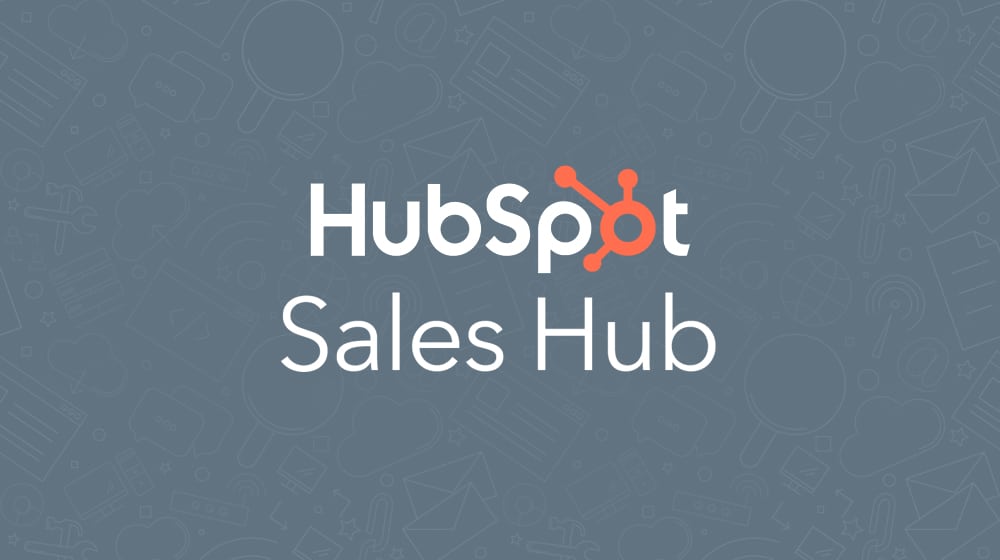
As for pricing, four editions are available:
- $0/month USD (Free)
- $20/month USD (Starter)
- $450/month USD (Professional)
- $1,200/month USD (Enterprise)
There's an option for every budget and company size, ensuring a perfect fit.
The Sales Hub is refreshingly straightforward. There's no need for extensive training; its intuitive design means your team can dive right in. Think of the simplicity and ease of the early smartphones.
In our digitally-driven era, nurturing customer relationships is crucial. Studies have shown that businesses that prioritize these connections experience increased loyalty, satisfaction, and, consequently, growth.
However, growth can introduce new challenges. More customers can lead to increased demands, and larger teams require heightened coordination. The Sales Hub is structured to grow with your company, ensuring you navigate these evolutions effectively.
The HubSpot Service Hub
Strengthening customer relationships is pivotal for business success, and HubSpot's Service Hub is here to facilitate that. With editions ranging from $0/month USD (Free) to $1,200/month USD (Enterprise), it's tailored for businesses of all scales.
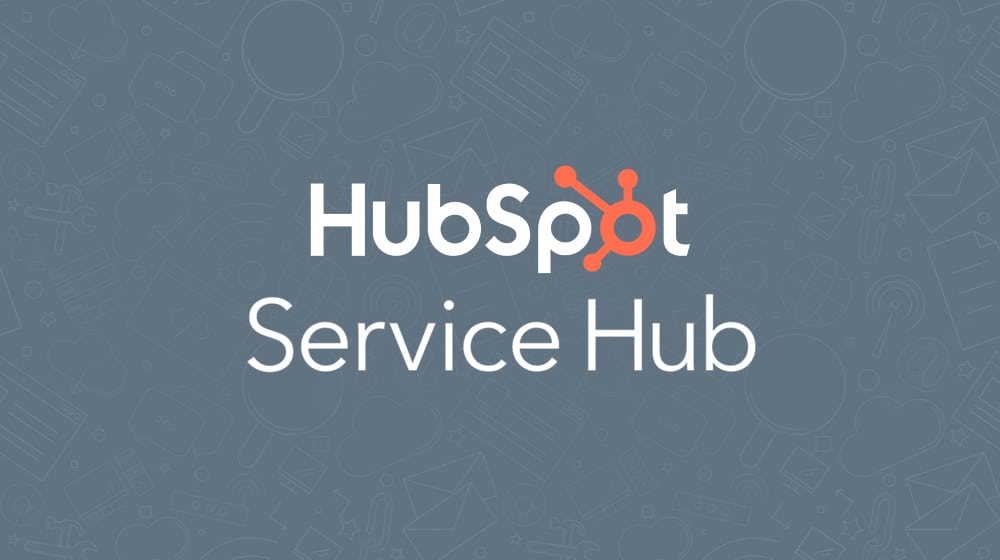
Consider the Service Hub as a virtual concierge, not just welcoming customers but boosting team efficiency and forging direct connections with your front office. It's like having an extra pair of hands ensuring precision in operations.
Beyond being just another tool, the Service Hub integrates seamlessly with HubSpot's comprehensive CRM platform. This synergy lets you deliver genuine service, truly embodying a customer-centric approach.
Key Features:
- Ease-of-use: Designed with all users in mind, ensuring a smooth experience even for the less tech-inclined.
- All-in-one solution: Centralize operations with a single, unified dashboard.
- Premium Support: Always on hand to assist because every query matters when it's about your clients.
From my extensive experience in SEO strategy, I've witnessed how integrating tools like this can significantly uplift customer experiences. Believe me, the investment in such refined software yields remarkable returns in the long run.
The HubSpot Operation Hub
Streamlining operations is paramount in today's business landscape, and the HubSpot Operations Hub emerges as a standout solution. This tool is expertly crafted to facilitate syncing, cleaning, and curating customer data.
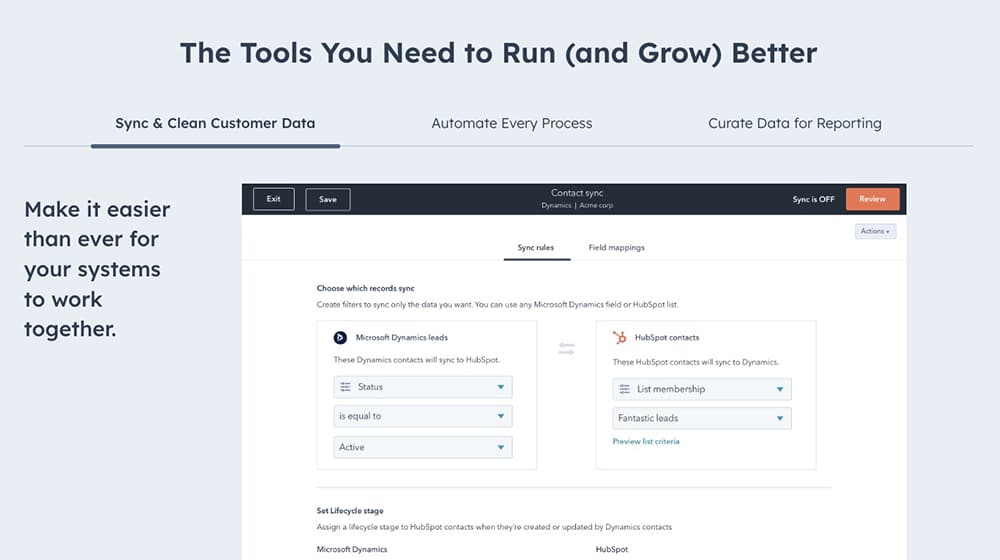
Why is this pivotal? Accurate and well-maintained customer data ensures that your team operates from a unified and reliable data source. In a time when misinformation can divert efforts and drain resources, this alignment becomes essential for efficient operations and sustained success.
The Operations Hub isn't just about data management; it's a platform that equips businesses to swiftly adapt to the evolving needs of today's dynamic consumers. As customer preferences shift with emerging trends, how does one remain agile? The answer lies in:
- Data Syncing: Keep lead and customer details updated across various platforms.
- Data Cleaning: Eliminate discrepancies or errors that might cloud judgment or analysis.
- Data Curation: Arrange data in meaningful ways aligned with your business objectives.
Think of it this way: Just as no one wishes for their personal missteps to be publicized, businesses don't want to work with "dirty" data. Outdated or inaccurate data can misguide a company, much like unfounded rumors can tarnish an individual's reputation.
As for pricing, options begin at $0/month USD (Free), scaling to $20/month USD (Starter), $720/month USD (Professional), and $2000/month USD for the Enterprise tier. Each level brings advanced features curated to address the distinct needs of your business.
The HubSpot Commerce Hub
Envision the hub of a wheel, where all spokes meet to offer stability and facilitate motion. This is the essence of HubSpot's Commerce Hub for your business operations.
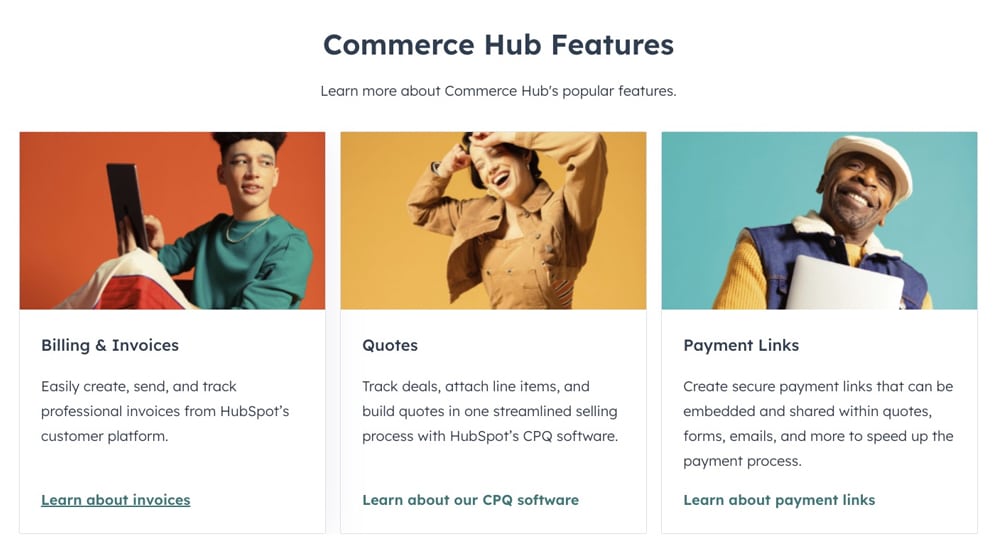
This platform is comparable to a multifunctional digital toolset. Not only does it provide capabilities to seamlessly sync, clean, and curate customer data, but it also equips you with automation tools to streamline business processes.
Synchronizing customer data across multiple platforms can be challenging. HubSpot's Commerce Hub simplifies this task, acting as a central point to unify your client information, eliminating the need to juggle between disparate databases or cross-referencing spreadsheets.
Navigating through disordered datasets can feel like a wild goose chase. The Commerce Hub comes to the rescue, purifying your data by eradicating redundant or outdated entries, ensuring only accurate and relevant information remains. This refined data repository aids informed decision-making, turning data into a valuable resource.
And for those swamped by routine tasks? The hub's automation tools free you up, allowing businesses to center their energies on crafting strategies rather than getting bogged down by operational details.
Conclusion
HubSpot is more than just a service; it's a multifaceted toolset for businesses. Much like having a comprehensive toolbox, HubSpot offers diverse solutions for a myriad of business challenges.
- The HubSpot CRM Suite stands as the cornerstone—think of it as the essential hammer in your toolkit. It's tailored to forge robust customer relationships. With a wide pricing spectrum from free to enterprise tiers, it caters to businesses of all scales.
- Imagine marketing as crafting the perfect paper airplane. The HubSpot Marketing Hub is your ultimate guide—blending art with precision to ensure your message takes flight effectively.
- In the realm of sales, the Sales Hub acts as your beacon, shedding light on the darkest scenarios. Its features offer a streamlined approach to lead management, putting an end to those chaotic spreadsheets and scattered sticky notes.
In my opinion, the value in HubSpot is its comprehensive nature. Be it the Service, Operation, or Commerce Hubs, each caters to distinct organizational challenges while emphasizing a seamless user experience. The beauty is in how these modules interlink, functioning harmoniously like gears in a synchronized mechanism.
I'm a big fan of HubSpot's tech and their guiding principles. After all, inbound marketing is the only kind of marketing that I do!
The only thing I might pass on is the CMS. WordPress is just too good.



 30 Second Summary
30 Second Summary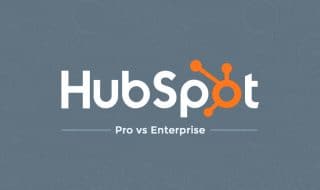
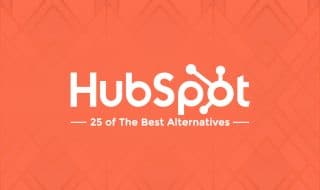

Comments